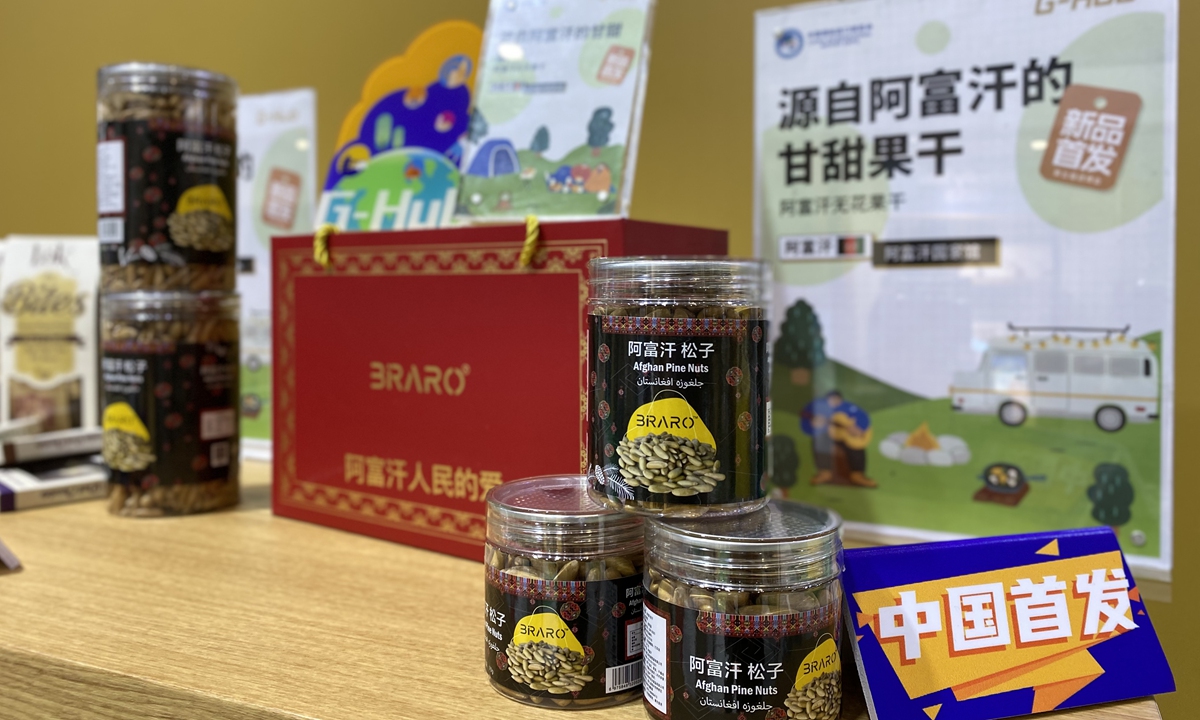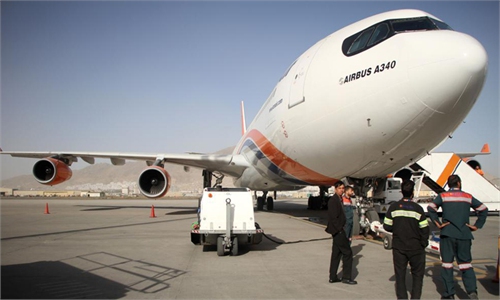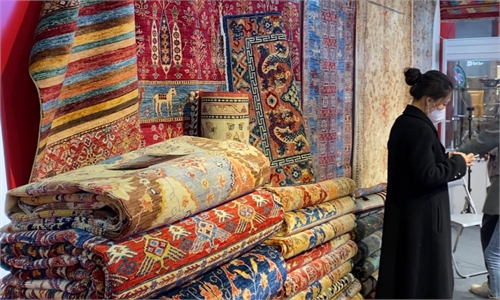
Afghan businessmen showcase pine nuts at the ongoing fifth China International Import Expo (CIIE) on November 6, 2022. Photo: Yu Xi/GT
In addition to Afghan pine nuts, which have won increasing popularity in the Chinese market, more products including figs, raisins, carpets and ornaments from Afghanistan are put on show at the ongoing fifth China International Import Expo (CIIE), eyeing a larger market share through the platform.
Afghanistan-based trading company Biraro is exhibiting carpets, pine nuts and other products at the CIIE. It is the third time for the company to attend the fair and it has "got a lot of promotional opportunities" through the event, said Ali Azghar Faiz, general manager of Biraro.
"We are glad to bring Afghan pine nuts and other agricultural products including dried apricots to China through the 'air corridor of pine nuts', and we hope to promote our products through the CIIE platform," Ali told the Global Times on Sunday.
Biraro has been expanding its business in China in recent years and is planning to invest in the market, according to Ali.
When introducing his carpets, Ali said that "we also make new designs that are very close to Chinese culture… we bring the products from Afghanistan to China, and that's how we're trying to build up the economy."
Ali is also preparing for the next CIIE and has filed applications to export pomegranates to China.
Mohammad Jan Aminzai, president of Khwaja Mohanmmd Amin Co, told the Global Times on Sunday that the pine nuts business has generated at least 100,000 jobs in Afghanistan.
"China is our biggest and best market for this product, and now every week Afghan merchants fly 20 tons of pine nuts into Shanghai," Aminzai said, noting that it is really good for Afghan economy.
China and Afghanistan signed an agreement on exporting Afghan pine nuts to China in June 2018, marking the start of the "air corridor of pine nuts." According to China's Foreign Ministry, 3,000 to 5,000 tons of pine nuts are directly shipped to China each year, delivering benefits to pine nut pickers in Afghanistan.
The Afghan economy was once highly dependent on external aid. Since the US imposed financial controls on the country, more than 30 million people have faced a humanitarian crisis, which has made it crucial for the war-torn economy to regain internal momentum, experts said.
The CIIE has offered a valuable platform for Afghan products to enter the markets of China and other countries, which is a great opportunity for related Afghan industries and people, Liu Zongyi, secretary-general of the Research Center for China-South Asia Cooperation at the Shanghai Institutes for International Studies, told the Global Times on Sunday.
Unlike the economic pattern that relied on foreign aid, increasing trade with Afghanistan could help activate the "hematopoietic function" of its economy and gradually realize sustainable growth, Liu said.
There is great potential in the trade of agricultural and other products with Afghanistan, as long as the situation in Afghanistan remains stable, Liu added.



